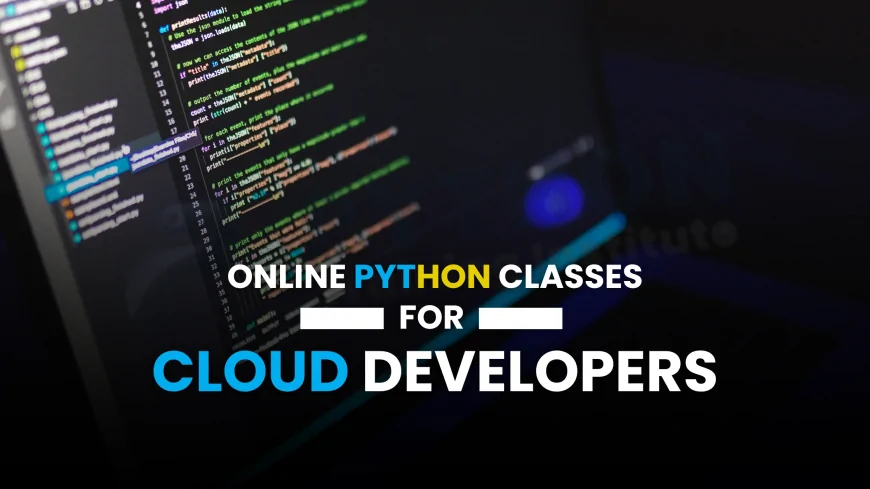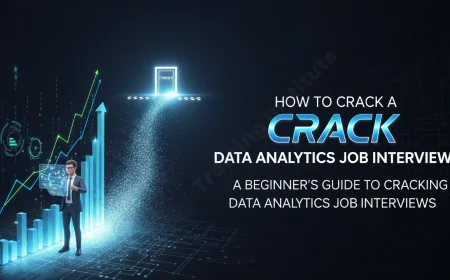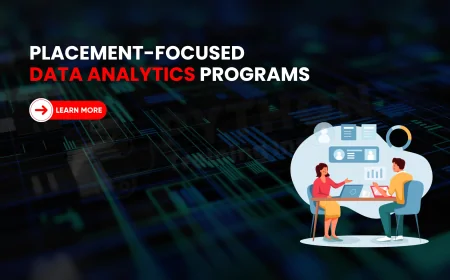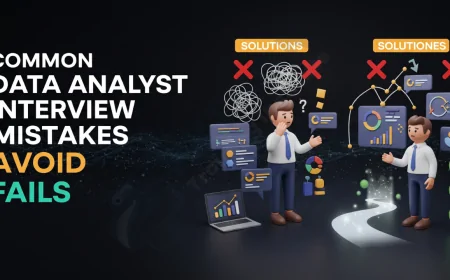Online Python Classes for Cloud Developers Pune |Online Python Development Classes for Cloud Engineers Pune
Enroll in top-rated online Python classes in Pune designed for cloud developers. Learn Python with real-world cloud integration, DevOps tools, AWS/GCP modules, and get certified through project-based training.

Table of Contents
- 1. Why Python is Essential for Cloud Developers
- 2. Key Features of Online Python Cloud Courses
- 3. What Cloud Skills are Covered
- 4. Top Training Institutes in Pune
- 5. Project-Based Learning Approach
- 6. Tools and Technologies You’ll Learn
- 7. Who Should Join These Courses?
- 8. Job Roles After Completion
- 9. Python Certifications for Cloud Developers
- 10. Frequently Asked Questions (FAQs)
- 11. Conclusion
Why Python is Essential for Cloud Developers
Python has become the go-to language for cloud development due to its simplicity, wide library support, and integration with major cloud platforms like AWS, Google Cloud Platform (GCP), and Microsoft Azure. Its readable syntax allows developers to quickly write automation scripts, build APIs, and develop scalable cloud-native applications.
- Cloud Automation: Python works seamlessly with tools like
boto3(AWS SDK for Python) andgoogle-cloudlibraries to automate infrastructure provisioning, storage, and networking tasks. - Serverless Development: Python is one of the most popular languages for building serverless functions using AWS Lambda, Azure Functions, and Google Cloud Functions.
- DevOps and CI/CD: Python plays a critical role in writing scripts for pipelines, monitoring, and deployment automation using Jenkins, GitHub Actions, and other tools.
- Microservices and APIs: Frameworks like Flask and FastAPI help cloud developers build lightweight RESTful APIs that are cloud-ready and easily deployable in containers or serverless platforms.
- Cross-Platform Compatibility: Python’s flexibility allows it to run on multiple operating systems and integrate with various cloud SDKs and CLIs, making it ideal for hybrid and multi-cloud environments.
For cloud developers in Pune and beyond, mastering Python isn't just a skill—it's a necessity to thrive in the ever-evolving world of cloud infrastructure and DevOps.
Key Features of Online Python Cloud Courses
- Live instructor-led or self-paced classes
- Cloud-native project modules (AWS, GCP, Azure)
- Real-time Python automation scripts
- Integration with Docker, Kubernetes, Terraform
- Resume building and certification preparation
What Cloud Skills are Covered
- Python with AWS SDK (boto3)
- Writing Lambda functions in Python
- Deploying Flask/Django apps on AWS EC2
- Using Python to automate AWS S3, EC2, and RDS
- Google Cloud integration with Python
- Terraform scripting with Python backend
- CI/CD automation using Python with Jenkins/GitHub Actions
Top Training Institutes in Pune
- WebAsha Technologies: Known for its specialized Python programs with AWS, GCP, and Azure integrations. Offers cloud-focused live training with hands-on labs and certification support.
- WebAsha Cloud Academy: A sub-division focused on cloud technologies, offering Python courses tailored for DevOps engineers and cloud automation professionals.
- WebAsha Online Bootcamp: Delivers instructor-led, fast-track Python cloud programs with project-based learning and job readiness mentoring.
- WebAsha Hybrid Learning: Combines recorded content with live mentor support, ideal for working professionals looking for cloud-based Python upskilling.
- WebAsha Corporate Solutions: Offers customized Python training for teams working on cloud infrastructure, DevOps, and automation projects in enterprise settings.
Project-Based Learning Approach
- Deploying a REST API on AWS Lambda
- Auto-provisioning EC2 instances using Python + Boto3
- Log aggregation pipeline with AWS S3 & CloudWatch
- Dockerized Python Flask app deployed to GCP App Engine
- CI/CD pipeline using GitHub Actions and Python test automation
Tools and Technologies You’ll Learn
- Python 3.x
- Boto3 (AWS SDK for Python)
- Flask / Django
- Terraform (Infrastructure as Code)
- Docker & Kubernetes
- Git, GitHub Actions
- Google Cloud SDK
- VS Code, Jupyter Notebook
Who Should Join These Courses?
- Cloud engineers looking to improve automation skills
- DevOps professionals wanting Python integration
- Software developers aiming to transition into cloud roles
- Freshers seeking cloud-ready Python skills
- IT admins automating tasks on cloud infrastructure
Job Roles After Completion
- Cloud Developer (Python)
- DevOps Engineer with Python Automation
- Site Reliability Engineer (SRE)
- AWS/GCP Automation Specialist
- Python Backend Developer (Cloud)
Python Certifications for Cloud Developers
- PCEP / PCAP: Python Institute certifications that are foundational and associate level
- Microsoft Certified: Azure Developer Associate – Supports Python apps on Azure
- Google Associate Cloud Engineer – Often uses Python in GCP tasks
- AWS Certified Developer – Associate – Python used extensively in Lambda, automation
Frequently Asked Questions (FAQs)
1. Do I need prior experience to join cloud-based Python courses?
No, most programs start with Python basics before diving into cloud concepts.
2. Which cloud platform is best to learn with Python?
AWS is the most widely used, followed by GCP and Azure. Most courses offer AWS modules.
3. Will I get certified after the course?
Yes, most institutes provide a certificate of completion, and also prep you for industry certifications.
4. How are these classes conducted?
Classes are conducted live online, often with recordings and additional mentor support.
5. How long does it take to complete the course?
Usually 6–12 weeks depending on batch type (weekday, weekend, fast-track).
6. Is placement assistance available?
Yes, leading providers like WebAsha offer placement support, mock interviews, and resume reviews.
7. What are the key Python topics taught?
Data types, control structures, OOP, file handling, modules, APIs, and libraries like boto3, flask, etc.
8. Will I work on cloud platforms directly?
Yes, you’ll get hands-on practice with AWS, GCP, or Azure during projects.
9. Is the course suitable for DevOps engineers?
Yes, Python is commonly used in DevOps automation, making it highly relevant.
10. Do I need to install tools on my system?
Basic tools like Python, VS Code, AWS CLI may be required. Setup guidance is provided.
11. Are these classes beginner-friendly?
Yes, most start from zero and gradually build up to advanced cloud topics.
12. Can I get recordings if I miss a class?
Yes, recordings are generally provided after each session.
13. Are any free courses available?
Some platforms offer free trials or self-paced options. Full-featured courses are paid.
14. Will I learn automation with Python?
Yes, automation of AWS/GCP tasks is a major component.
15. Can I build a portfolio with these projects?
Yes, your projects can be showcased on GitHub and LinkedIn.
16. What’s the average salary after this course?
In Pune, cloud developers with Python skills earn ₹5–12 LPA depending on experience.
17. What kind of system is needed?
Any laptop with 8GB RAM and internet is sufficient for most tasks.
18. Are mock tests included?
Yes, mock assessments are part of certification preparation.
19. Do I need to learn frameworks like Django?
Basic Flask or Django is taught if the course includes backend modules.
20. How do I enroll in WebAsha’s course?
Visit their official site, register for a demo session, and choose your batch.
Conclusion
The demand for cloud developers with Python skills is growing rapidly, and Pune offers an excellent ecosystem of online courses designed for this purpose. With live sessions, practical projects, and cloud platform integration, these programs equip you with real-world skills to succeed in cloud automation, DevOps, and Python-based infrastructure roles. Whether you're a fresher or working professional, enrolling in an online Python cloud course from providers like WebAsha will boost your career trajectory and open up high-paying job opportunities in India’s booming tech industry.
What's Your Reaction?
 Like
0
Like
0
 Dislike
0
Dislike
0
 Love
0
Love
0
 Funny
0
Funny
0
 Angry
0
Angry
0
 Sad
0
Sad
0
 Wow
0
Wow
0















